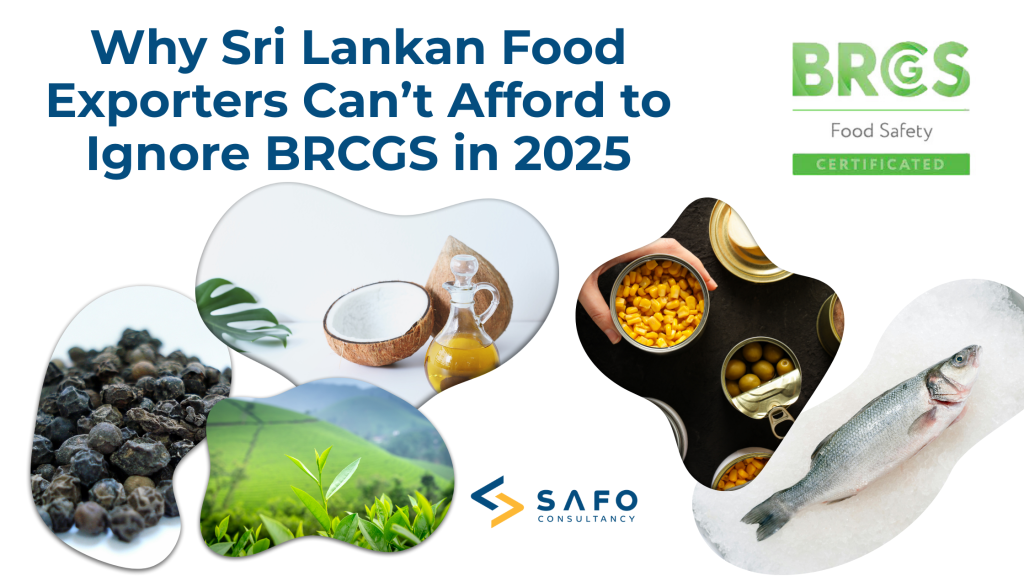
As global markets tighten their grip on food safety compliance, BRCGS (Brand Reputation through Compliance Global Standard) has emerged as a non-negotiable requirement for food exporters—especially for those in Sri Lanka.
With demand increasing from markets in Europe, the UK, and North America, BRCGS is not just a badge—it’s a business passport.
🚚 What is BRCGS and Why Does It Matter?
Originally developed by UK retailers, BRCGS is a globally recognized food safety and quality management system. It ensures products meet strict safety, legality, and quality requirements.
By 2025, buyers now insist on sourcing only from GFSI-benchmarked schemes—and BRCGS leads the pack.
Key reasons it matters:
-
Mandatory for exporting to UK and European retailers
-
Demonstrates a robust food safety culture
-
Reduces the risk of product recalls and rejections
-
Builds buyer confidence in your supply chain
📈 2025 Trends: BRCGS Over ISO 22000
While ISO 22000 is still valuable, BRCGS offers more visibility, traceability, and brand protection, especially for retailers.
In 2025:
-
Over 70% of UK buyers request BRCGS-certified suppliers.
-
Major supermarket chains won’t onboard suppliers without it.
-
Online food retailers and platforms are also tightening supplier controls.
For Sri Lankan exporters, choosing ISO 22000 alone may limit access to premium markets.
🇱🇰 Why Sri Lankan Exporters Must Prioritize BRCGS
Sri Lanka’s food export industry is booming—from spices and coconut products to ready-to-eat meals and tea. However, with great opportunity comes great scrutiny.
Here’s why BRCGS is critical:
✅ Boosts Export Readiness:
BRCGS gives your product a passport to enter high-paying markets like the UK, EU, and Canada.
✅ Enhances Global Credibility:
Being BRCGS-certified builds trust with international buyers and regulators.
✅ Protects Your Brand from Recalls:
It emphasizes risk-based thinking and preventive controls, reducing costly mistakes.
✅ Supports Continuous Improvement:
BRCGS isn’t a one-time fix; it fosters a food safety culture with ongoing improvements.
✅ Easy Integration with Other Standards:
Already certified to ISO 22000? BRCGS can be integrated, giving you more power with less effort.
💼 Case Study: A Sri Lankan Coconut Exporter’s Success
In 2024, a Sri Lankan coconut milk exporter lost a major UK client due to the absence of BRCGS certification. After investing in the standard and getting certified in early 2025, they secured not just that client back—but gained entry into three additional UK supermarket chains within six months.
The difference? Global compliance and customer assurance.
📢 Final Word: Compliance is No Longer a Choice—It’s a Competitive Edge
In 2025, Sri Lankan food exporters who fail to adopt BRCGS will face barriers—not just to growth, but to survival. Retailer expectations, consumer trust, and food safety risks are at an all-time high.
If your goal is to export confidently, retain global buyers, and scale your brand, then BRCGS isn’t optional—it’s essential.
👣 What to Do Next?
If you’re a Sri Lankan food business aiming for export markets, now is the time to:
-
Start your BRCGS journey
-
Seek expert consultancy
-
Train your team on global compliance standards
Your market reputation depends on it.
